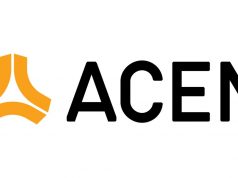By Denise A. Valdez, Reporter
THE Philippine Competition Commission (PCC) tapped a United Kingdom-based audit firm to monitor Grab Philippines’ (MyTaxi.PH, Inc.) fulfillment of its voluntary commitments in relation to its acquisition of Uber Philippines in March.
In a statement on Wednesday, the competition watchdog said it picked Smith & Williamson (S&W) as the third party auditor to oversee Grab’s compliance for one year.
“After thorough evaluation, S&W was determined as the most suited to conduct monitoring compliance with the parties’ voluntary commitments in the Grab case. Their track record on competition cases includes the most recent task of monitoring Grab-Uber on the Interim Measures Directions in Singapore,” the PCC said.
It noted the company’s credibility as an auditor is backed by its “over 100 years’ experience as an audit firm and 13 years of reporting to various competition authorities across jurisdictions.”
In a statement, Grab said it has worked with S&W in Singapore, describing them as “truly fair and independent.”
Last August, the PCC approved Grab’s voluntary commitments that were meant to address competition concerns. These commitments cover the ride-hailing company’s service quality, fare transparency, pricing, removal of a “see destination” feature for drivers, driver and operator non-exclusivity, incentives monitoring, and an improvement plan.
“During the 12-month period, every time the monitor would have findings of some kind of a breach (in commitments), they would have to report that to the Commission, then the Commission will decide whether or not to impose fines,”
PCC Commissioner Stella Luz A. Quimbo told BusinessWorld in a phone interview.
Should the PCC find Grab engaging in anti-competitive practices after the 12-month period, Ms. Quimbo said it may still call out the company, but for a different provision in the Philippine Competition Act.
“After the 12-month period, if PCC still finds anti-competitive behavior on the part of Grab, we can open Section 15 (a) which is abuse of dominance. We can have some form of intervention, not a merger control but a case that we open under what we call abuse of dominance,” she said.
Section 15 of the Philippine Competition Act outlines provisions that empower the PCC to prohibit practices from a dominant industry player that “substantially prevent, restrict or lessen competition.”
Ms. Quimbo said the monitoring of voluntary commitments, which Grab tapped to deal with its Uber buy-out issue, is part of PCC’s merger control policy.



